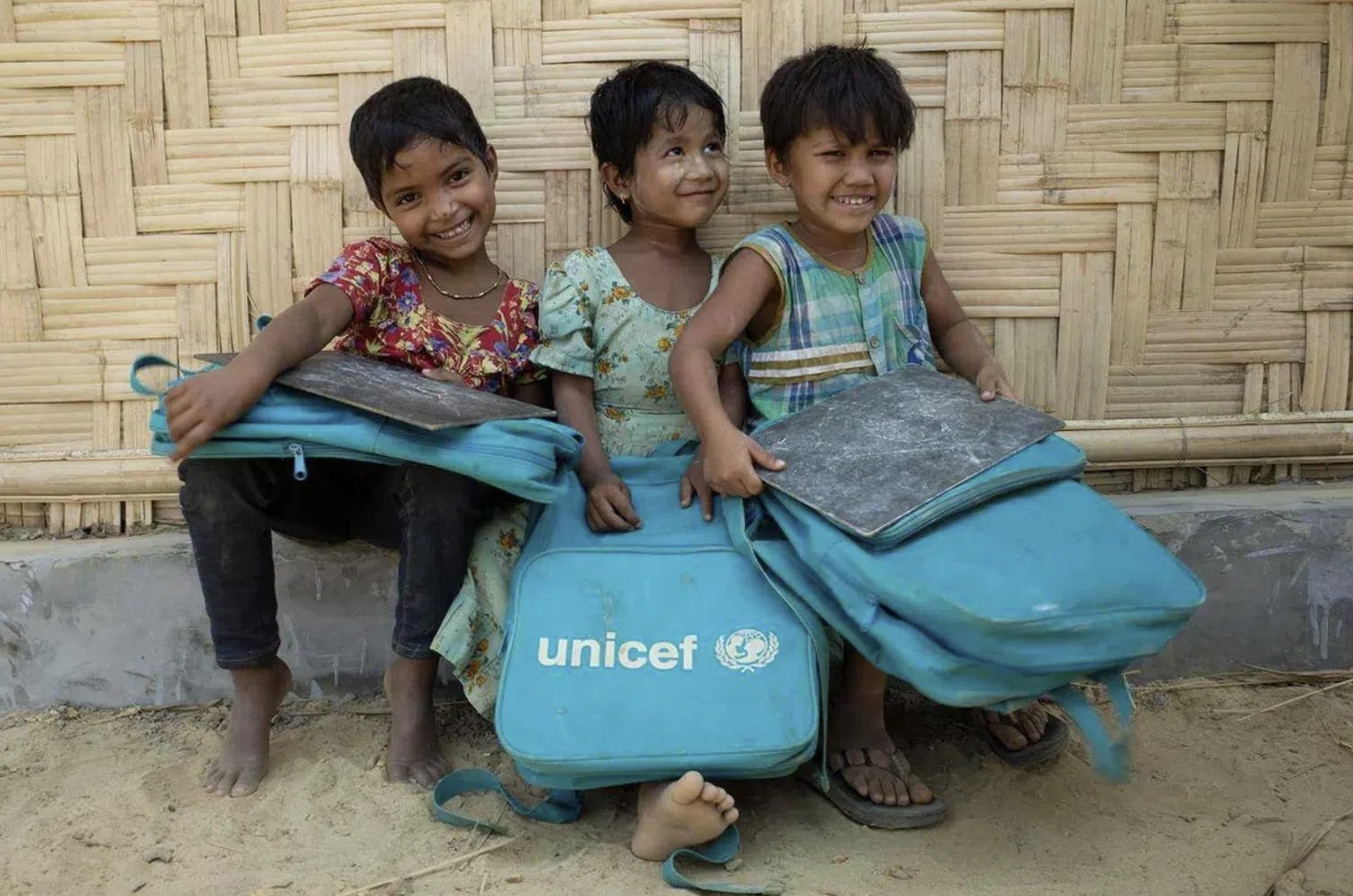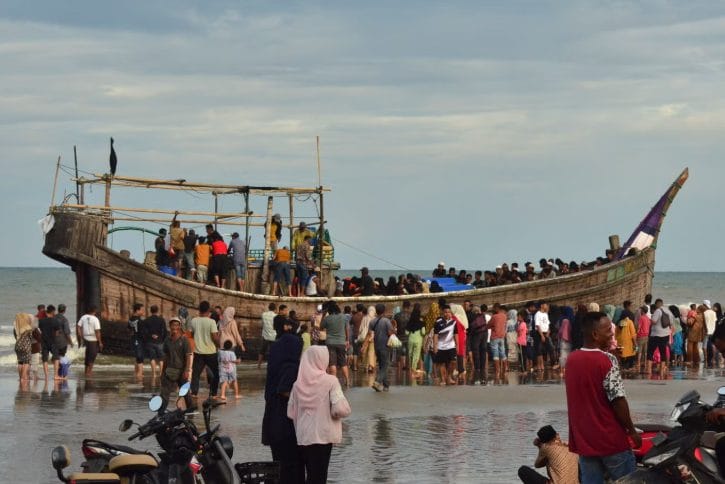Arakan News Agency
The United Nations Children’s Fund (UNICEF) has warned that its ability to continue providing essential services to Rohingya refugee children in Bangladesh is rapidly declining, noting that its humanitarian programs could completely collapse by 2026 due to a severe funding crisis it described as a “funding cliff.”
Carla Haddad Mardini, UNICEF’s Director of Private Fundraising and Partnerships, said after visiting the Cox’s Bazar refugee camps that the current funding crisis threatens to erase years of progress made for Rohingya children. She added that the closure of classrooms and the reduction of services are endangering the futures of hundreds of thousands of children whose lives “hang by a thread.”
She explained that education, water, sanitation, and hygiene services are the most affected by the funding shortage, stressing that the organization is doing everything possible to stretch every dollar but is running out of options as international support continues to decline.
Mardini noted that the international community’s response to the Rohingya crisis is heading toward a funding cliff in early 2026, pointing out that the worst estimates suggest international contributions could drop by half — even though they are already insufficient to meet current needs.
She added that the rate of severe acute malnutrition among children has reached its highest level since 2017, warning that the ongoing lack of funding could lead to an imminent humanitarian catastrophe in the overcrowded camps.
Mardini affirmed that despite UNICEF’s efforts to merge programs, localize aid, and cut costs, it cannot compensate for the sharp decline in funding, emphasizing that Rohingya children are paying the highest price for the silence of the international community and the declining commitment of donors.
Earlier, the United Nations Children’s Fund had also warned that 350,000 Rohingya refugee children could be permanently deprived of education by 2026 due to drastic cuts in international funding allocated to education.

















